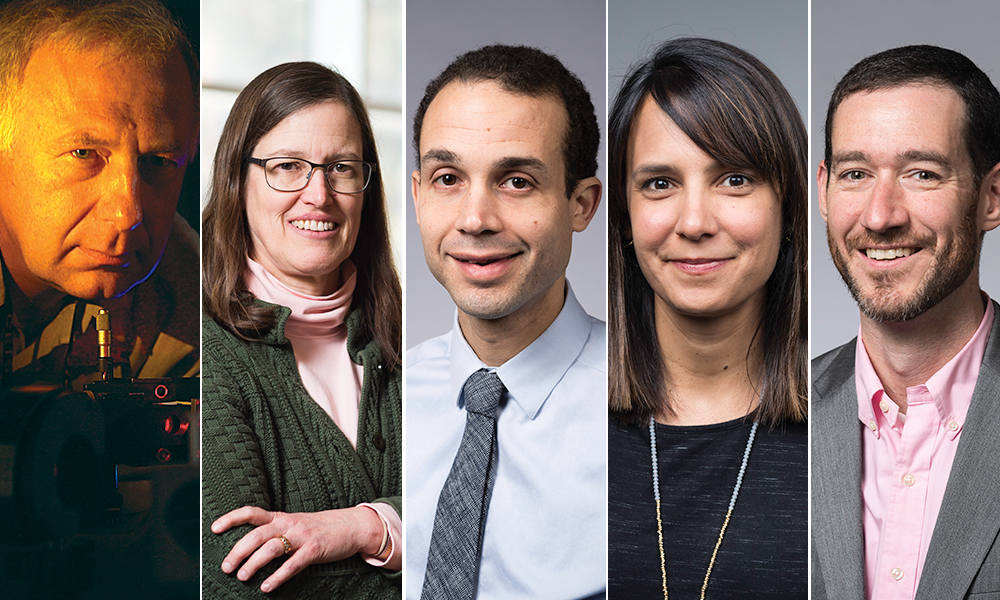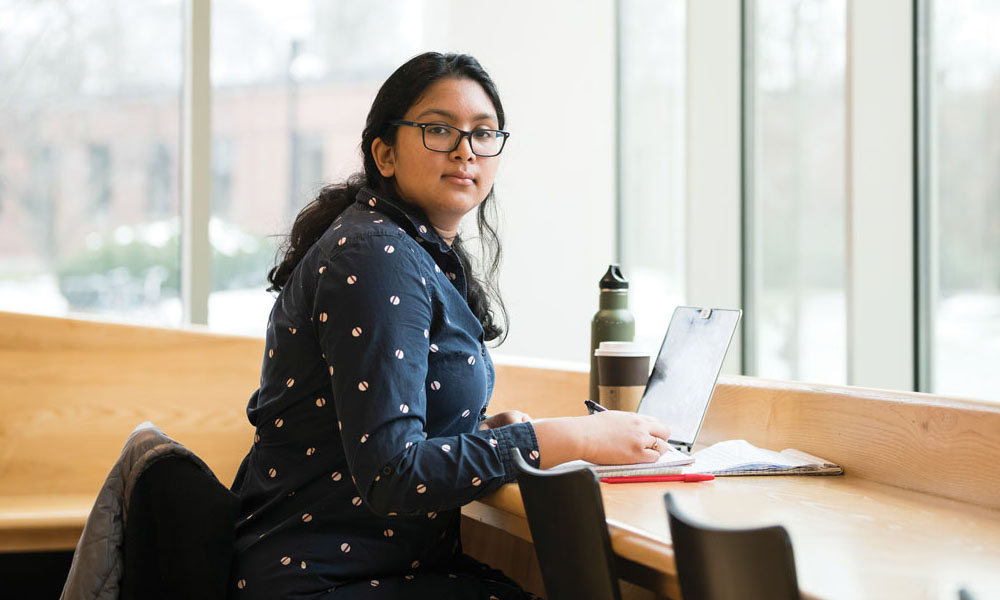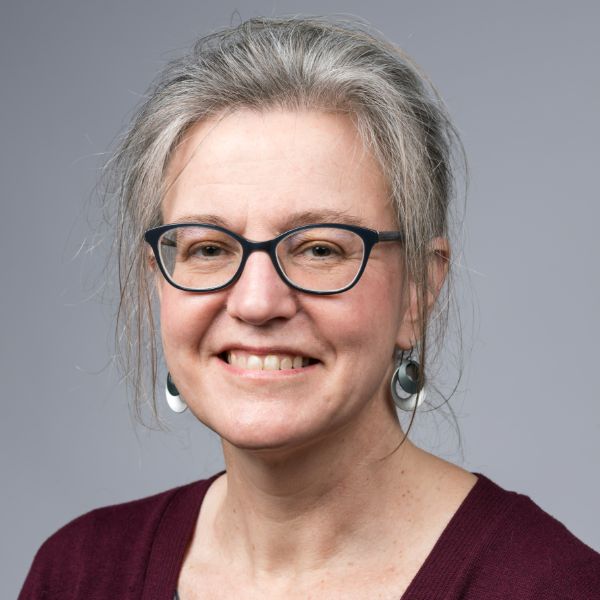The University of Rochester will significantly expand the support services offered to its low-income, first-generation college students as a result of a five-year, $1.3 million grant from the US Department of Education (DOE). The University has already received generous support from the DOE for initiatives such as the Ronald E. McNair Postbaccalaureate Achievement, Talent Search, and Upward Bound programs; the new grant provides additional resources for academic advising, financial assistance, and enrichment activities for students.
The Student Support Services award—like the McNair, Talent Search, and Upward Bound programs—will be administered in the David T. Kearns Center for Leadership and Diversity in Arts, Sciences & Engineering.
Beth Olivares, dean for diversity in Arts, Sciences & Engineering and executive director of the Kearns Center, says that the center “has been academic home for first-generation college students now for four years, and the need for our services has far outstripped our ability to meet that need.”
As of this year, roughly 28 percent of undergraduates in the College are low income or first generation. Olivares estimates roughly 170 low-income, first-generation students in the Class of 2024.
More resources for proven models
The Kearns Center is one of four offices that offer advising services to undergraduates in the College. The others include the College Center for Advising Services (CCAS), the Office of Minority Student Affairs (OMSA), and the Greene Center for Career Education and Connections.
The Kearns Center’s particular mission is to expand the educational pipeline, from pre-college programs through graduate and professional school, for low-income, first-generation college, and underrepresented minority students. The center has worked toward that mission by generating replicable and scalable models. Already, by receiving a mix of intensive academic advising and graduate and professional school preparation, undergraduates served by the Kearns Center graduate on time and attend graduate and professional schools in numbers well above the national average.
Still, as of the Class of 2019, there is roughly a 10-percentage-point gap between the four-year graduation rates of Rochester students who are low income and/or first generation versus students who fall into neither of those categories. Among low-income and/or first-generation students who are members of underrepresented minority groups, the gap is roughly 20 percentage points.
Low-income and first-generation college students face unique challenges that, left unaddressed, lead to lower retention and graduation rates. Among the findings both nationally, and from internal data at the Kearns Center:
- Families of these students are unfamiliar with higher education. Consequently, the students are less likely to know about student support services. If they are aware of the resources, they are often hesitant to use them, for fear of stigmatization.
- Many come to college with less rigorous preparation than their peers from advantaged socioeconomic backgrounds. If they perform poorly in a course, they are more likely to doubt themselves and their abilities; if they have to retake a course, they may lack the financial resources to do so.
- They often work extra jobs, unrelated to academic work, to continue to support family members. Without financial support, they are unable to take unpaid internships that may be valuable preparation for careers or graduate education.
- They may decide not to apply to graduate or professional programs because of the costs. Fees for test preparation, tests, score reports, transcripts, and attendance at professional events that have come to be expected of applicants, can add up to several thousand dollars.
- Low-income, first-generation students who are also members of underrepresented minority groups often report instances of discrimination—both subtle and overt—that increase feelings of stress and isolation.
Olivares says the key to retention and graduate rates are individual, group, and cohort services that span all four years. In particular, she identifies a need for enriched study groups for first- and second-year courses—often the gateways to the student’s major of choice.
Mercedes Ramírez Fernández, the Richard Feldman Vice President for Equity and Inclusion and the University’s chief diversity officer, says she is “thrilled” about the award.
“This is a wonderful opportunity for the University. I have worked with Student Support Services grants at other institutions, so I know that this is a model that works.”
Jeffrey Runner, dean of the College, says the new resources will allow a talented and dedicated staff to expand its ranks, reaching more students.
“Much credit has to go to the Kearns Center, under Beth Olivares’s leadership, for creating a strong support system including a team of devoted staff members dedicated to ensuring the success of our low-income and first-generation college students. This award will provide funding to strengthen this team even further.”
Read more
 These mentors make a difference for first-generation, minority students
These mentors make a difference for first-generation, minority studentsRochester faculty mentors are the inaugural recipients of a new mentorship award from the University’s David T. Kearns Center for Leadership and Diversity.
 Visit the Kearns Center
Visit the Kearns CenterThe David T. Kearns Center for Leadership and Diversity strives to expand the educational pipeline through the doctoral degree for low-income, first-generation college, and underrepresented minority students.
 First in the family
First in the familyMaking up about 20 percent of the undergraduate population, students who are the first in their families to attend college find success at Rochester. Meet a few of them.



